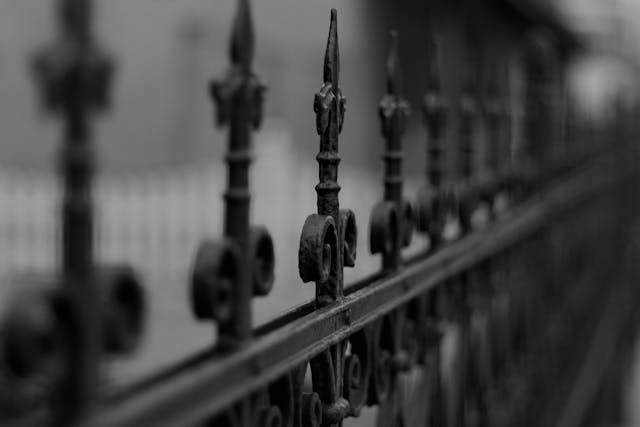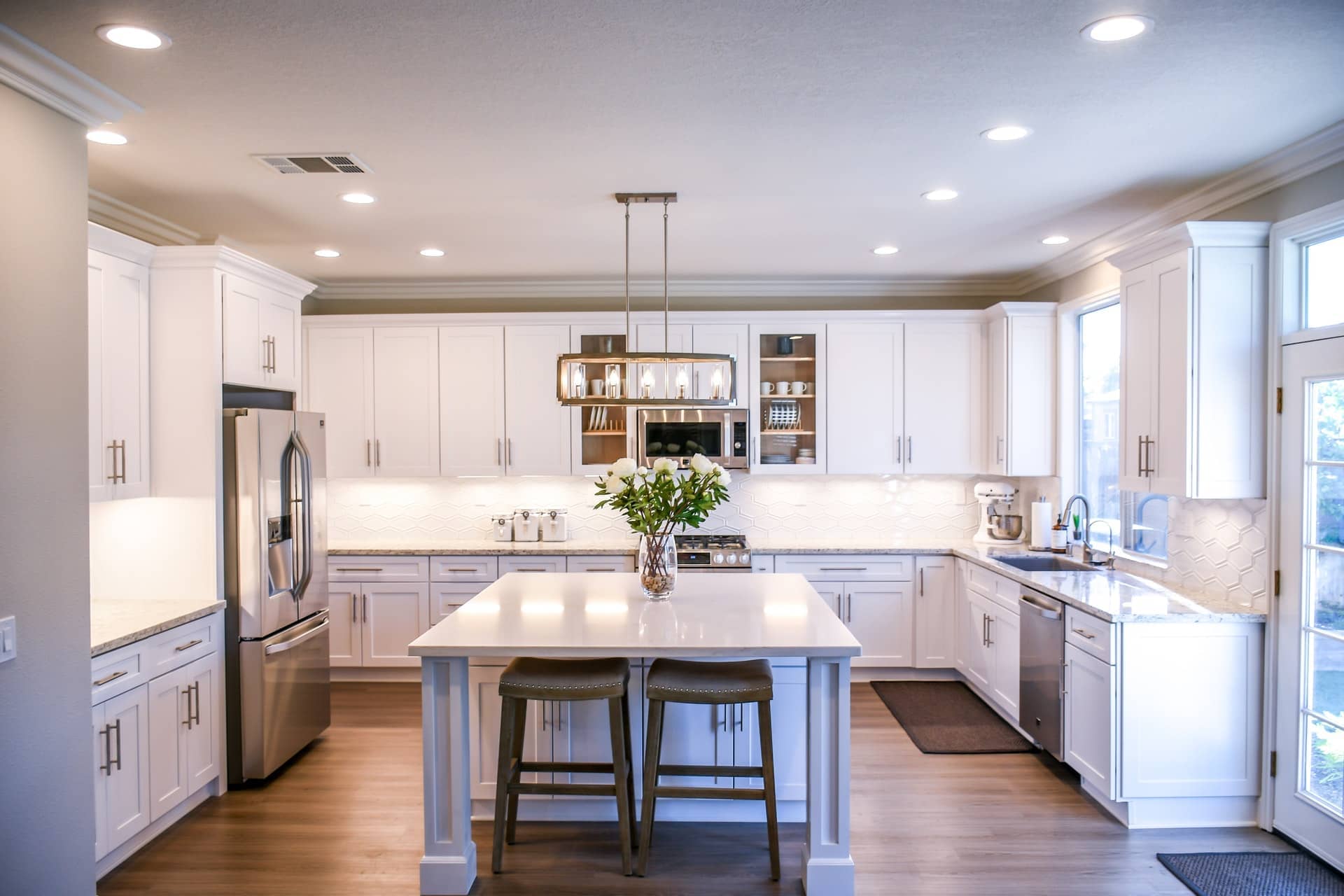
Aluminum vs. Wrought Iron Fences in Humid Climates
We help many homeowners in Charleston, Beaufort, Hilton Head, Okatie, and the surrounding areas in South Carolina, and as you can imagine, we get a lot of questions about which fences can handle the salty humid air. It’s a fair question – nobody wants a rusty or rotten fence. Furthermore, you probably don’t want to apply wood sealer every year if you don’t have to.
Hence the blog post about aluminum vs. wrought iron in a humid environment. If you would like a quote on your fencing installation in Charleston or the surrounding areas, please get in touch. We would be happy to help.
Are Wrought Iron Fences Worth The Cost?
Charleston and wrought iron fences have gone hand-in-hand for over 300 years at this point. The ornate design and good strength look good with historic homes and high end properties, and those who want a fence that makes a statement often look into iron. However, wrought iron fences require regular upkeep in humid environments. Iron is highly susceptible to rust, and in a place like Charleston, where humidity levels often exceed 80%, oxidation happens faster than in drier climates. Salt in the air accelerates this process further.
Even a small chip in the paint or protective coating allows moisture to reach the metal, leading to corrosion. Sanding, priming, and repainting might be necessary every so often. Some homeowners add a powder coating, which offers a more durable protective layer, but even that requires touch-ups over time.
Another challenge is cost. Wrought iron fencing is labor-intensive to install due to its weight and custom fabrication. The material itself is also more expensive. All-in, you may need to spend upwards of $80 per linear foot on your fence (materials and installation combined).
Aluminum Fences Require Less Maintenance
Unlike iron, aluminum does not rust. The natural properties of aluminum create a corrosion-resistant barrier, which is further strengthened when coated with a protective powder finish. This resistance to rust means that aluminum fences require significantly less maintenance. There is no need for sanding, priming, or repainting, and the structure remains intact even after years of exposure to moisture. Homeowners can occasionally wash an aluminum fence with mild soap and water to remove dirt or mildew, but that is the extent of required upkeep. The material is lightweight, so installation generally costs less than with wrought iron.
But that doesn’t change the fact that aluminum just isn’t wrought iron. It does a nice job imitating the look of iron without the cost and maintenance, but the light materials don’t carry exactly the same character. If you’d like to see pictures of aluminum vs. wrought iron in real life, give our Bluffton fence company a call and we would be happy to help you.
What Looks Better in South Carolina: Aluminum or Iron?
It’s impossible to beat a wrought iron fence in historic areas. You can even have a fence custom made by a local metalworker. In general, colonial homes look incredible with wrought iron fencing and gates – but you will pay for it.
Aluminum fences also come in a variety of styles, some of which mimic wrought iron. Many manufacturers offer ornamental aluminum designs that replicate the look of traditional ironwork without the maintenance issues. Homeowners who want the historic charm of wrought iron but need a lower-maintenance solution often find aluminum to be the ideal compromise.
Keep the weight of wrought iron in mind as well. Wrought iron fences are significantly heavier, which means they require stronger support posts and a more labor-intensive installation process. The soft and sometimes sandy soil in the Lowcountry means that proper post anchoring is required to prevent shifting over time. Aluminum, since it’s lighter, doesn’t require the same amount of anchoring.
Which Fence is the Best Choice for Charleston’s Climate?
While wrought iron has more character and strength, its vulnerability to rust in South Carolina's humid climate makes it a high-maintenance choice. Homeowners willing to invest in frequent upkeep and protective coatings may find wrought iron worth the effort.
If you want a durable, low-maintenance fence, aluminum is probably the better option. It offers the look of wrought iron without the rust concerns, requires minimal upkeep, and is more cost-effective in the long run.
If you need help balancing your property’s look, your budget, and your ability to maintain a fence, call the best local fence company. We are here to help, and we can talk you through the advantages and disadvantages of iron and aluminum fencing.


